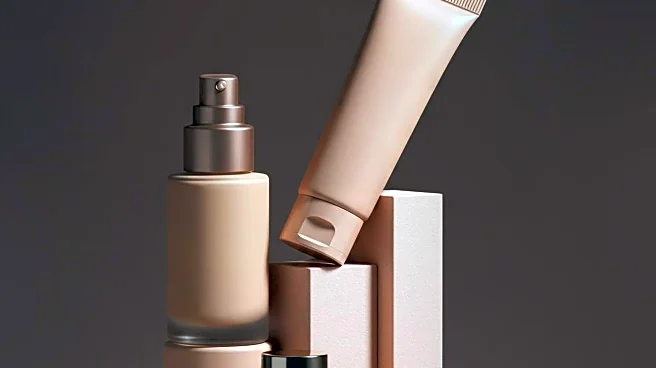What's Happening?
The cosmetics industry is increasingly focusing on the skin-brain connection, viewing skincare not just as a cosmetic routine but as a meaningful act of self-care. This approach emphasizes the role of daily
skincare rituals, such as applying sunscreen and moisturizers, in engaging neurosensory pathways, reducing stress, and promoting emotional resilience. The concept of 'neurocosmetics' is emerging, which leverages sensorial cues like touch, scent, and temperature to enhance mood and well-being. The industry is encouraged to ground these innovations in solid scientific evidence to ensure that skincare can evolve into a tool for both physical and emotional health.
Why It's Important?
This development is significant as it positions skincare as a potential lever for emotional self-regulation and cognitive resilience. By integrating neuro-active ingredients and sensorial experiences, the cosmetics industry can offer consumers a way to manage stress and improve emotional well-being. This shift could lead to a broader acceptance of skincare as a form of self-care, potentially increasing consumer engagement and market growth. However, it also raises the need for regulatory oversight to prevent exaggerated claims and ensure that products deliver on their promises without misleading consumers.
What's Next?
The industry is likely to see further innovation in 'smart neurocosmetics' and AI-guided personalized skincare regimens. These advancements will require careful consideration of ethical and regulatory frameworks to protect consumer autonomy and ensure that claims are backed by robust scientific evidence. As the dialogue between the cosmetics industry and dermatologists continues, there may be increased collaboration to validate the benefits of neurocosmetics through clinical trials and biomarker studies.
Beyond the Headlines
The exploration of the skin-brain connection in cosmetics highlights a cultural shift towards viewing self-care as an integral part of daily life. This trend reflects a growing consumer desire for products that offer more than just aesthetic benefits, aligning with broader wellness and mental health goals. The industry's challenge will be to balance innovation with ethical marketing practices, ensuring that the emotional and cognitive benefits of skincare are communicated transparently and responsibly.









